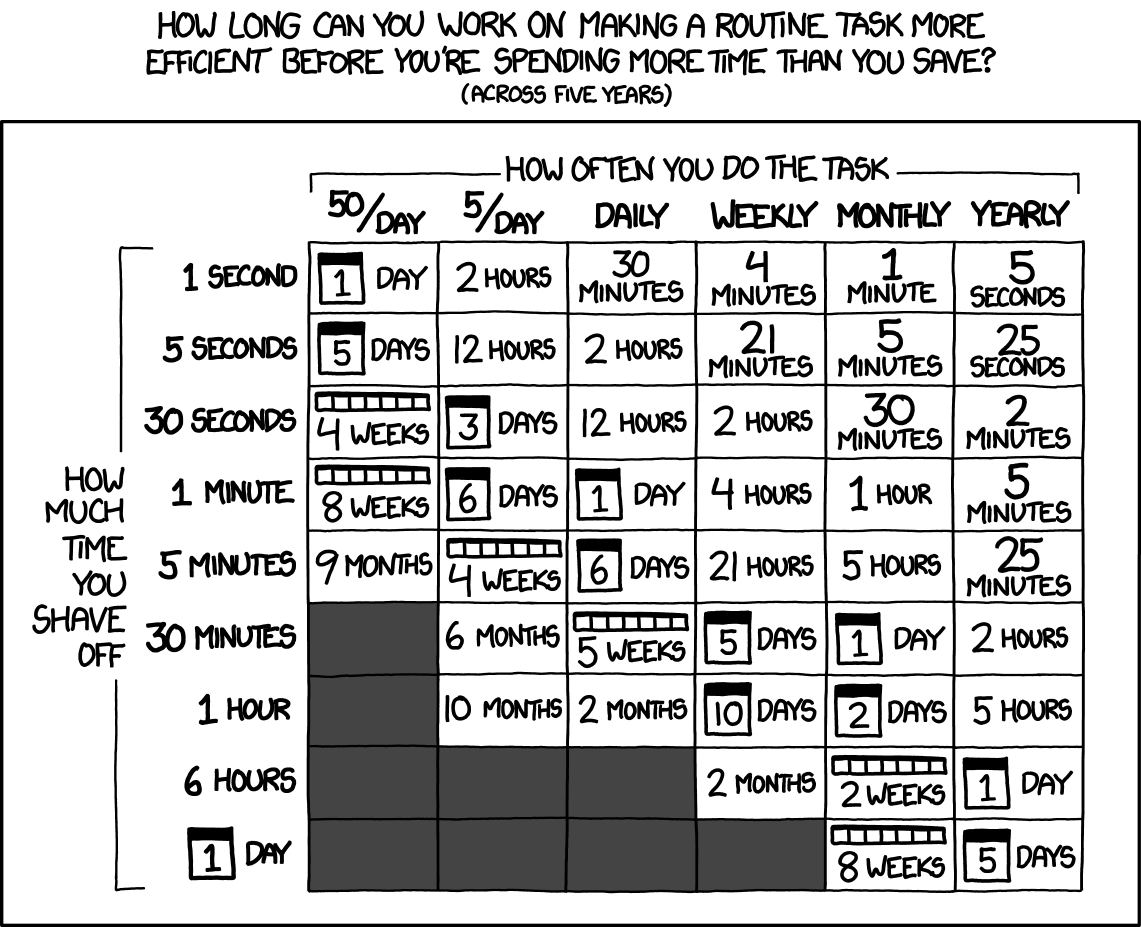Utility-vs-usability.md (3376B)
- ---
- title: Utility vs usability
- date: 2020-11-06
- ---
- In many fields, professional-grade tooling requires a high degree of knowledge
- and training to use properly, usually more than is available to the amateur. The
- typical mechanic's tool chest makes my (rather well-stocked, in my opinion) tool
- bag look quite silly. A racecar driver is using a vehicle which is much more
- complex than, say, the soccer mom's mini-van. Professional-grade tools are,
- necessarily, more complex and require skill to use.
- There are two attributes to consider when classifying these tools: *utility* and
- *usability*. These are not the same thing. Some tools have both high utility and
- high usability, such as a pencil. Some are highly usable, but of low utility,
- such as a child's tricycle. Tools of both low-utility and low-usability are
- uncommon, but I'm sure you can think of a few examples from your own experiences
- :)
- When designing tools, it is important to consider both of these attributes, and
- it helps to keep the intended audience in mind. I think that many programmers
- today are overly concerned with usability, and insufficiently concerned with
- utility. Some programmers (although this sort prefers "developer") go so far as
- to fetishize usability *at the expense* of utility.
- In some cases, sacrificing utility in favor of usability is an acceptable
- trade-off. In the earlier example's case, it's unlikely that anyone would argue
- that the soccer mom should be loading the tots into an F1 racecar. However, it's
- equally absurd to suppose that the F1 driver should bring a mini-van to the race
- track. In the realm of programming, this metaphor speaks most strongly to me in
- the design of programming tools.
- I argue that most programmers are professionals who are going to invest several
- years into learning the craft. This is the audience for whom I design my tools.
- What trouble is it to spend an extra hour learning a somewhat less intuitive
- [code review tool](https://git-send-email.io) when the programming language
- whose code you're reviewing required months to learn and years to master?
- [](https://xkcd.com/1205/)
- I write tools to maximize the productivity of professional programmers. Ideally,
- we can achieve both usability and utility, and often we do just that.
- But, sometimes, these tools require a steeper learning curve. If they are *more
- useful* in spite of that, they will usually save heaps of time in the long run.
- Instead of focusing on dumbing down our tools, maximizing usability at the
- expense of utility, we should focus on making powerful tools *and* fostering a
- culture of *mentorship*. Senior engineers should be helping their juniors learn
- and grow to embrace and build a new generation of more and more productive
- tooling, considering usability all the while but never at the expense of
- utility.
- I'll address mentorship in more detail in future posts. For now, I'll just state
- that mentorship is the praxis of my tooling philosophy. We can build better,
- more powerful, and more productive tools, even if they require a steeper
- learning curve, so long as we're prepared to teach people how to use them, and
- they're prepared to learn.